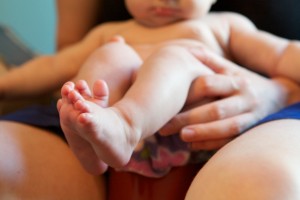My first had always been a good sleeper. We co-slept through about 18 months or so, and when we moved, Little Man jumped right into his big-boy bed and that’s where he wanted to sleep.
After I had my second child, we went through a phase where Little Man would wander into my bed in the middle of the night. Which was fine for a while. Hey, if he needed some extra security or mommy time or whatever it was, I was happy to oblige. After all, he was adapting to a pretty big change.
After a few months, he would wander into the bedroom in the middle of the night, where the other 3 of us were sleeping, and start asking for trains. Or cookies. Or to go to Zia’s (his aunt’s) house. And when we would say no, a full-throttle tantrum ensued. So, the 3 of us would have to wake fully, get Little Man settled, then try to settle ourselves and the baby to sleep.
He did this every night for about a month. It had gone on long enough that we were all becoming tired, cranky zombies.
I have no problem waking with him for nightmares, for monsters in the closet, or if he’s not feeling well. But to burst in at 2:00 a.m. every night, getting everyone all fired up? It affected everyone, every day. And I didn’t want to start feeling resentful.
Okay, I was already feeling a little resentful.
At a loss, I did something about it. One night, when he came into our room, he made his usual request for something he could be sure we would shoot down. As soon he showed the first signs of tantrum, I picked him up and put him in his bed. I told him he could come back in and talk to us or sleep with us if he could do it quietly, without waking the baby.
Of course, this made him wail. When he came back in, I took him back to his bed, and repeated what I had just said. By the third time, I had almost given up. I felt like I was doing a form of cry-it-out for almost-three-year-olds. But because I was inviting him into our bed and the alternative (sleepy, crabby family) wasn’t good for anyone, I decided to stick to my guns this time.
After one more round, he started to calm down. I asked him, “can you come into the big bed quietly?”
“Yes,” he whispered.
I tucked us all in.
“You okay?” I asked.
“Get trains,” he said.
“No, it’s dark down there and we won’t be able to see them.”
“Okay.” He rolled over and went to sleep.
That was the first and last time I had to do anything like that at night. Now, when he wanders in, he sneaks in quietly and nobody knows until morning. We can all wake refreshed and happy. He has his nighttime security, we have our rest.
Still, as with every parenting move I make, I can’t help but wonder if I did the right thing.





